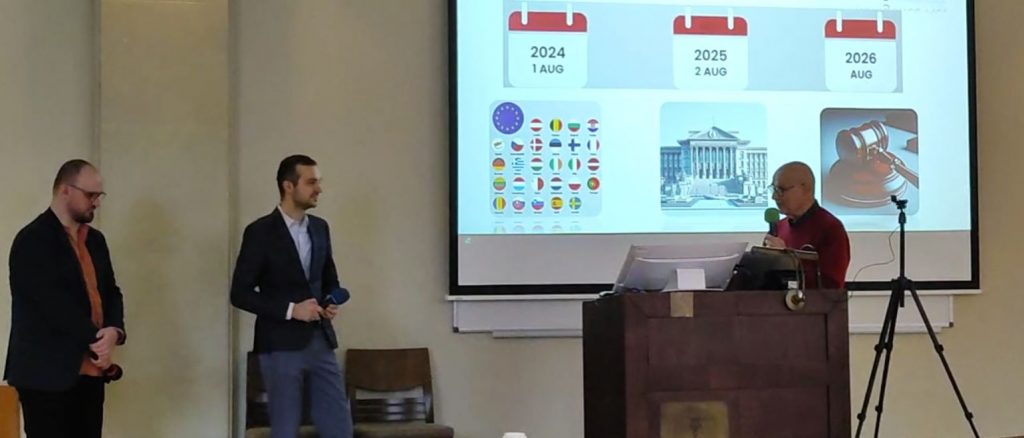
An inspiring seminar on AI regulations across various countries took place at the Poznań University of Economics and Business, as part of the third seminar on artificial intelligence and digital transformation – AITransformations. The event was held on January 13, 2025 in a hybrid format, combining in-person and online participation.
At the opening of the seminar, Prof. Witold Abramowicz, Advisor to the Rector for Artificial Intelligence and Digital Transformation, introduced the speakers: Dr. Marcin Szmydt, until recently Assistant Professor at our Department, currently Senior Delivery Manager, Artificial Intelligence, at EPAM Systems) and Dr. Olgun Aydin (Assistant Professor at the Department of Statistics and Econometry, Faculty of Management and Economics, Gdansk University of Technology).
The speakers explained how the European Union’s AI regulations (in particular the proposed “AI Act”) classify AI systems according to risk level (ranging from minimal to unacceptable) and outlined the associated obligations and potential financial penalties. They also discussed how these regulatory approaches compare to those in the United States, South Korea, China, and other countries. Attendees learned about the ways AI algorithms can unintentionally introduce bias in areas such as recruitment, healthcare, and credit systems. The seminar underscored the importance of model explainability techniques (“explainable AI” or XAI), which help identify undesirable patterns in training data.
Seminar recording:
Another key topic was the challenge of maintaining innovation amid tightening regulations. The speakers encouraged early collaboration among technical teams, legal departments, and regulatory bodies to create AI solutions that are both safe and competitive. Given AI’s unprecedented pace of development, the need for international cooperation was highlighted. Clear and consistent guidelines are considered vital to prevent regulatory fragmentation, which could slow the deployment of AI across industries. During the lively Q&A session, participants posed questions on intellectual property protection, the impact of AI on small and medium-sized enterprises, and the growing demand for corporate governance specialists in artificial intelligence.